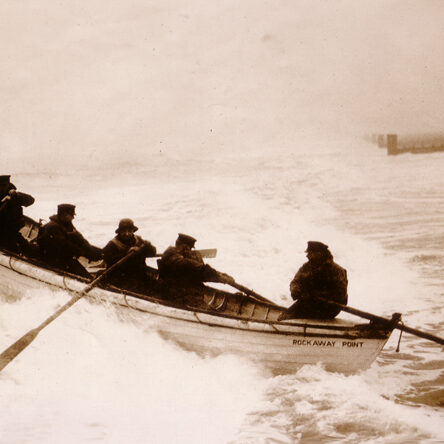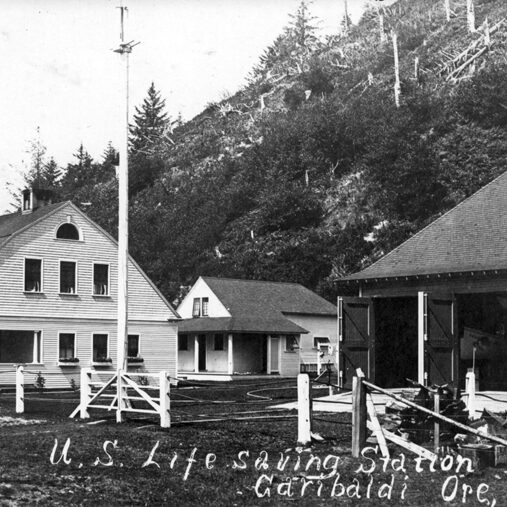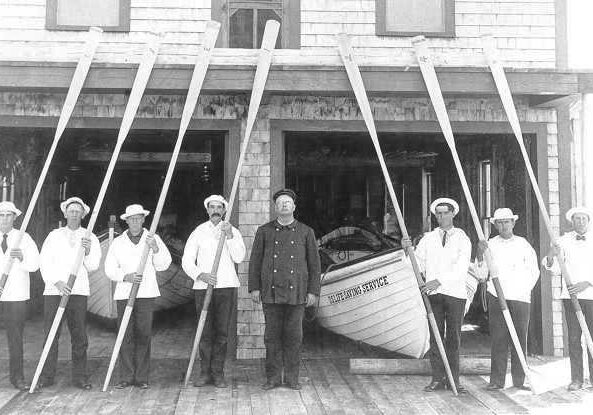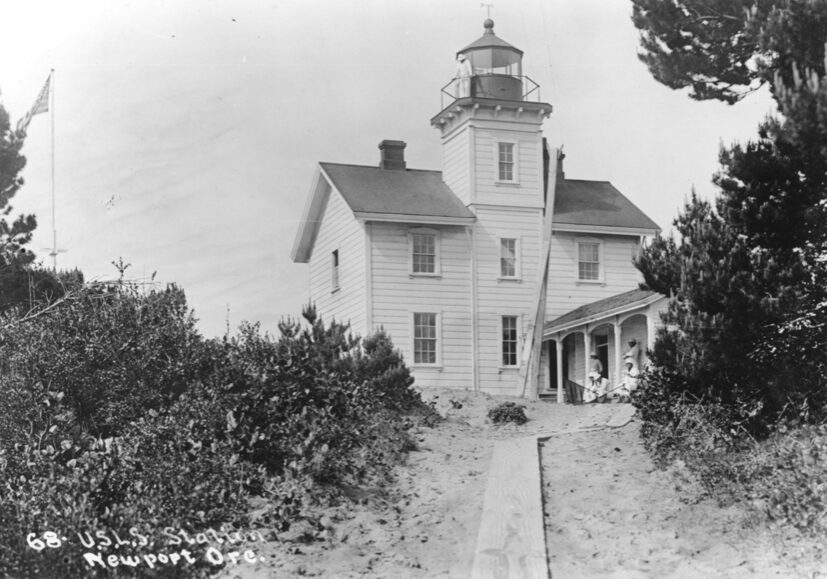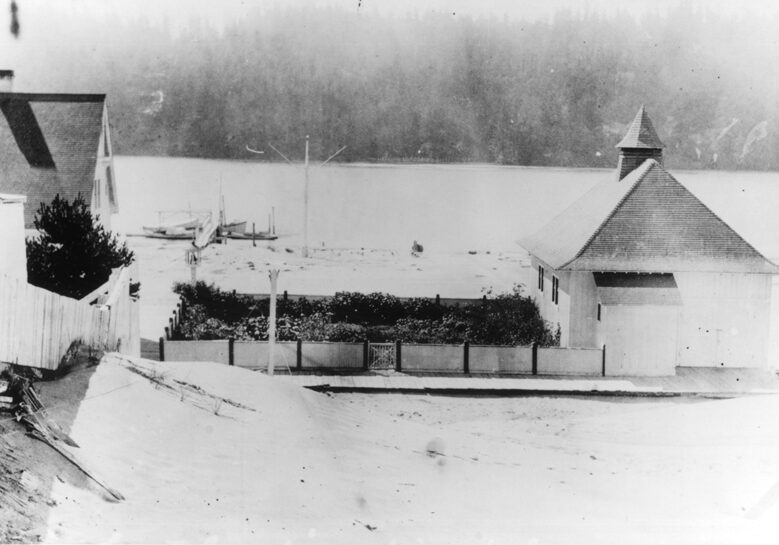Lifesavers' Duties & Equipment
The Keeper and surfmen had a daily rigid schedule that was standard throughout the service. The primary responsibility was to be on constant watch for ships in distress and to keep a record of passing vessels. On clear days, from sunrise to sunset, a surfman on day watch always manned the lookout tower. At night and on foggy days, the men walked beach patrol. They would light coston signal flares to warn off ships straying too close to the shore.
While men with small-boat-handling experience were wanted in the service, it took extensive training and continual practice to be able to successfully launch a lifeboat or surfboat in heavy seas and shoot the Lyle Gun to a ship offshore to set up the breeches buoy. Just about every day required some sort of practice to be performed. Along with these practices were cooking, cleaning and maintenance and keeping things in good order. The men took turns serving as the cook.
Daily Station Life
On Mondays: The surfmen drilled with gear for effecting rescues from the beach, such as setting up the breeches buoy and firing the line-throwing Lyle Gun. They also examined the surfboats and lifeboats to make sure they were in good condition, and performed any minor maintenance on them that might be required.
On Tuesdays: Was boat drill day; both the surfboat and lifeboats would be launched and recovered, and the men exercised at the oars for at least half an hour. In warm weather, the surfmen would often perform capsizing drill, practicing the procedures for righting an overturned boat. It was said that a well-trained crew could keep a boat rolling in the water like a log-roller might a floating log and sometimes the Keeper would not get wet as he maintained his balance as the boat did a 360 roll in the water.
On Wednesdays: The surfmen would practice signal drills. The men learned several different types of signaling, including how to send and read the signals using letter- and numerical flags like those used aboard ship; wig-wag flags, in which a single flag was waved to the left or right in various combinations to indicate individual letters; and night signaling using rockets and hand-held flares of different colors. On foul weather days, a small set of tin signal flags were used as surfmen sat at the table and practiced inside.
On Thursdays: It was again, devoted to drill with the beach apparatus.
On Fridays: The surfmen were trained in "restoring the apparently drowned," a form of artificial resuscitation. Though crude, it was surprisingly effective. In 1894, twelve years after it had first been introduced in the Life Saving Service, the technique had been applied to 118 victims of apparent drowning; 60 of these survived. Surfmen also received training in first aid and the use of "restoratives" such as brandy and mustard plasters.
On Saturdays: It was devoted to maintenance of the life saving station, its grounds and regular housekeeping chores.
On Sundays: It was the surfmen’s day off.
At night, the surfmen were assigned watches to patrol the shore, keeping a watch for vessels aground on the shore or other signs of distress. At Life Saving Service stations on a long, uninterrupted coast, it was common for surfmen to walk along the shore until they met a surfman from the next station coming in the opposite direction; the men would exchange stamped, metal tokens (checks) to prove they'd met, turn and trudge back to their respective stations. In addition to patrolling the shore near the station, the surfmen were required to keep a 24-hour watch from the station's lookout post, usually a platform built atop the station or sometime in a separate tower.
During their free time away from drills and patrols, surfmen were allowed to leave the station during daylight hours so long as they remained within earshot of the alarm bell. They were cautioned to keep off private property and observe local game laws, but fishing and hunting were common pastimes. Surfmen could, at the keeper's discretion, be granted a 24-hour leave, running from noon to noon, not more than once per week. Restriction to the station grounds was a common punishment for minor infractions of the regulations. But while the surfmen were rarely idle, life at a station could be insufferably dull at times while once in a while, actual rescues occurred.
